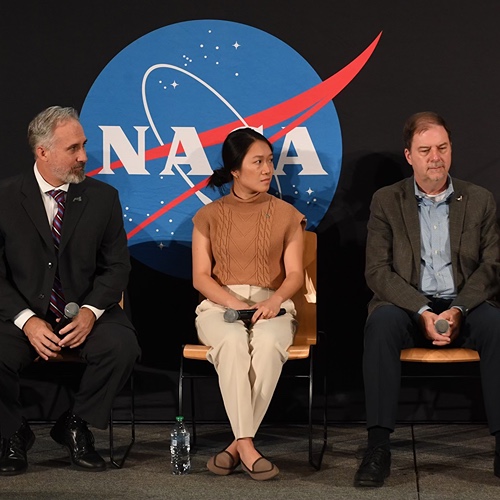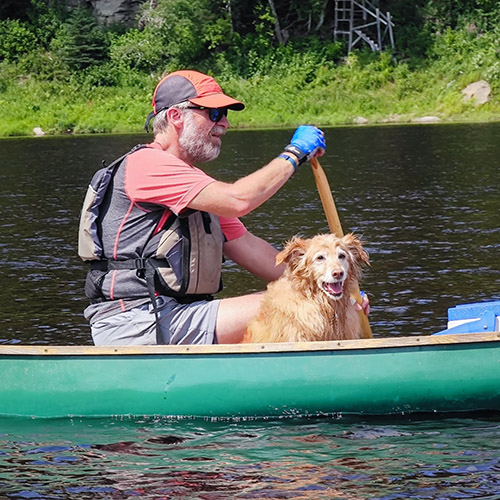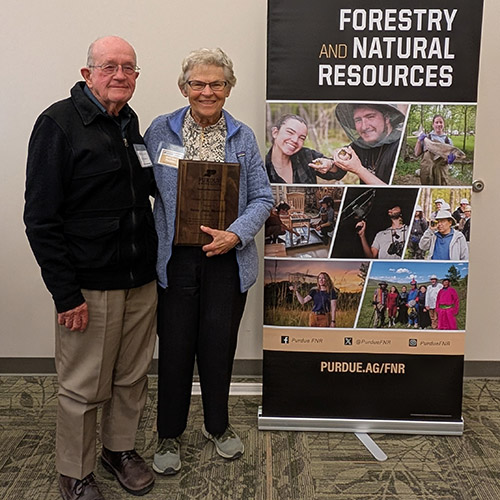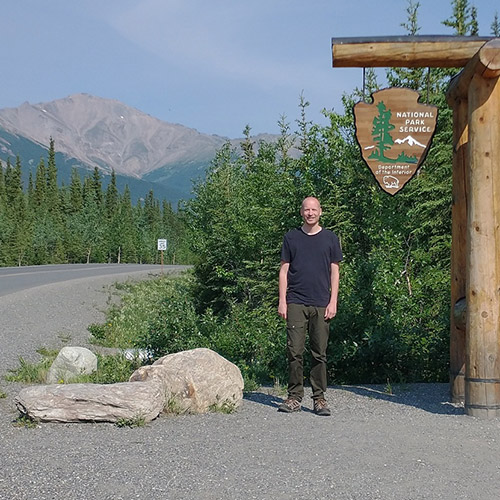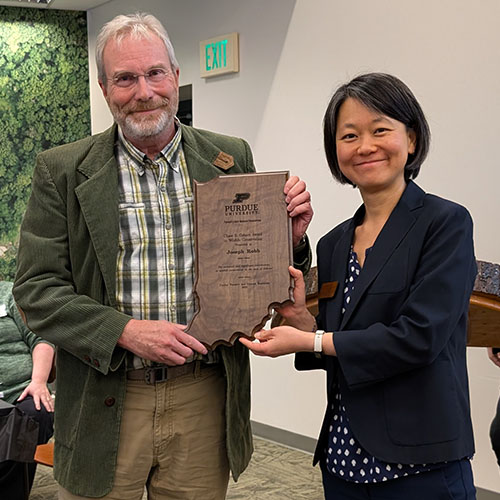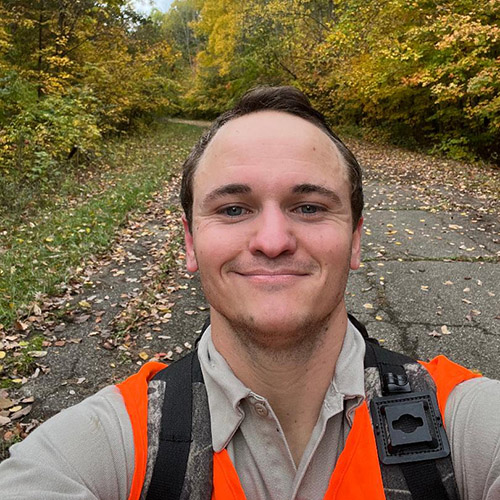Goldsmith Enjoyed Lab & Club Opportunities
Degree: BS Fisheries & Aquatic Sciences
While attending Purdue I worked in a fisheries lab and was very involved in the American Fisheries Society club. Several professors and graduate students talked to me about getting my master’s degree. I think this is a scenario that several students run into towards the end of their college career. Personally, I believe I would have enjoyed doing a master’s project with the right fit, but it didn’t make sense for my situation. My girlfriend, now wife, had an extra year of school to finish getting her degree in Graphic Design. Knowing how hard it is to find a fisheries job in a specific location, I decided, before my wife graduated and found a job somewhere, I wanted to explore the job market. If it didn’t work out I would then look into getting a master’s degree.
I started by taking a seasonal aide job with the DNR. This was the second summer in a row of doing this. These seasonal aide positions allowed me to gain a lot of field work experience and get to know some of the state biologists. I was hoping the timing would be right and an assistant position would open up for one of the districts, but I was also applying for jobs throughout the country. After six months and nearing the end of my seasonal position I landed a job in Phoenix, Arizona with Marsh & Associates LLC.
Marsh & Associates LLC is a small private company that does contracted research work on endangered and impaired fishes of the Southwest. I began as a Fisheries Technician in December of 2015. I helped out with projects on the Colorado River and in Death Valley National Park. In May 2016, I moved to lead biologist for a project in Provo, Utah on Utah Lake. I finished the last season of the contract and moved back to Phoenix to lead a new project on the Colorado River. These projects ranged from acoustic telemetry studies to discovering new home ranges of pupfish in Death Valley National Park.
In June 2017, my wife and I made the tough decision to move back to Indiana to be closer to family and to start a family of our own. We moved very abruptly without having any jobs lined up. We did this for various reasons, but shortly after moving back I reached out to one of my pervious classmates from Purdue who worked at Aquatic Control. I also remembered the Vice President of the company coming to an AFS meeting and talking to us and interviewing with him for a summer position. I decided to reach out to him as well. This resulted in an interview a few days later.
Currently, I am an Aquatic Biologist for Aquatic Control. During the spring and summer months I treat people’s ponds and lakes for weeds and algae so they can enjoy their resource. During the fall I conduct electrofishing surveys for clients who have us manage their fisheries and in the winter I write the management reports for them.
I think the moral of my story is to do what make sense for you and to remember everyone you meet along the way. I think getting a master’s degree is extremely beneficial for someone in the fisheries field, but it just didn’t make the most sense for my wife and I at the time. Taking another two years before looking for a job didn’t work for our plan and I’m happy with my decision to look for jobs before committing to a master’s degree. It is possible to have a fisheries career without a master’s degree, but I think you have to be willing to move around for jobs and keep an open mind about what type of job you are willing to take.

